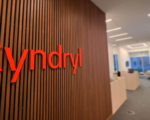Italy has initiated a landmark tax case, issuing VAT claims against Meta, X, and LinkedIn. The case, which could have widespread implications for the tech industry in Europe, challenges how social networks provide services and treat user data as taxable transactions.
Tax Claims Against Tech Giants
Italy’s tax authorities are claiming substantial amounts from the three U.S. tech giants: Meta (887.6 million euros), X (12.5 million euros), and LinkedIn (140 million euros). These claims span from 2015 to 2022, although the immediate focus is on the years 2015 and 2016, for which claims are set to expire soon.
The Controversial Issue: VAT on Free Services
The central issue in the case revolves around the way these companies provide access to their platforms. Italian authorities argue that the act of users registering on Meta, X, and LinkedIn should be considered a taxable transaction since it involves the exchange of personal data for access to membership accounts.
Meta has strongly opposed this view, asserting that providing access to online platforms should not be subject to VAT. LinkedIn and X have remained silent or unavailable for comment on the matter.
Potential Impact Across the European Union
The case could have wider ramifications across the EU, as VAT is a harmonized tax across member states. Experts suggest that the ruling may force tech companies to reconsider their business models, particularly those offering “free” services that require users to accept profiling cookies. This development could potentially extend to other industries, including airlines and publishers, which rely on similar business practices.
The Path Forward: Court or Settlement?
This is the first time that Italy has issued formal tax assessment notices without reaching a settlement agreement. The companies now have 60 days to appeal the claims, after which they may go to court—a process that could take up to 10 years in Italy. Alternatively, the tax authorities could drop the claims for technical or political reasons, or the companies could agree to pay some of the contested amounts while seeking further assessment from the European Commission.


















